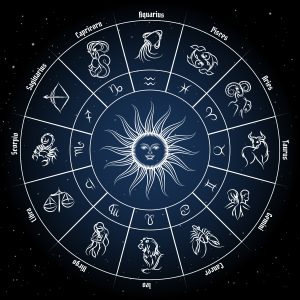
In the culturally rich tapestry of India, astrology has woven itself into the very fabric of society. As one of the oldest and most revered traditions, astrology in India transcends mere fortune-telling; it embodies a profound belief in cosmic connections and the influence of celestial bodies on human lives. From predicting auspicious times for weddings to offering guidance on career decisions and health concerns, astrologers in India hold a position of trust and authority.
what is Astrologer?
An astrologer is a practitioner who interprets celestial alignments to provide insights into personality traits and future events based on an individual’s birth chart. They offer guidance and predictions related to various aspects of life, including career, relationships, health, and more.
Understanding Astrologer
Astrology, or ‘Jyotish’ as it is known in Sanskrit, is deeply rooted in the Vedas, ancient scriptures that form the foundation of Hindu philosophy. It encompasses various systems and techniques such as Vedic astrology, Nadi astrology, and Western astrology, each offering unique insights and methodologies. Vedic astrology, in particular, is renowned for its meticulous calculations based on birth charts (kundalis) which map the positions of planets at the time of one’s birth.
The practice of astrology in India is not confined to Hinduism alone; it has permeated into other cultural and religious traditions as well. In Sikhism, for instance, astrology is consulted for important life events, while in Jainism, it plays a role in understanding karma and its implications on an individual’s life path.
Role of an Astrologer
Astrologers in India are regarded as custodians of ancient wisdom, wielding the ability to decipher celestial messages and interpret their impact on human destiny. They provide guidance on various aspects of life, including:
- Career and Education: Helping individuals make informed career choices based on planetary alignments and their implications for success and prosperity.
- Marriage and Relationships: Matching horoscopes (kundali matching) to ensure compatibility between prospective partners and offering remedies for marital harmony.
- Health and Well-being: Suggesting astrological remedies to mitigate health issues and improve overall well-being.
- Financial Outlook: Predicting financial prospects and advising on investments and wealth accumulation.
- Spiritual Growth: Guiding individuals on their spiritual journey, based on astrological insights into their innate strengths and challenges.
Finding the Best Astrologer in India
In a country where astrology holds such cultural significance, the quest for the best astrologer becomes a journey of discernment and trust. The title “Best Astrologer in India” is not merely a matter of popularity or advertising claims but is earned through a combination of factors:
- Expertise and Knowledge: A reputable astrologer possesses deep knowledge of astrological principles and techniques, often backed by years of rigorous study and practice.
- Accuracy and Predictive Ability: The ability to provide accurate predictions and insightful interpretations based on detailed analysis of birth charts and planetary movements.
- Ethics and Integrity: Upholding ethical standards and using astrology responsibly to empower and guide clients rather than exploit their vulnerabilities.
- Client Testimonials and Reviews: Positive feedback from satisfied clients often serves as a reliable indicator of an astrologer’s proficiency and trustworthiness.
- Holistic Approach: A holistic approach that considers not just the astrological factors but also the individual’s unique circumstances and aspirations.
Astrology in Modern India
In contemporary India, astrology has adapted to the digital age with online consultations, astrological apps, and live streaming of astrological discourses gaining popularity. Social media platforms serve as forums for astrological discussions, where enthusiasts share birth chart interpretations, planetary transits, and astrological remedies.
Despite advancements in technology, the reverence for traditional astrological practices remains strong. Many families still consult astrologers for naming ceremonies (namkaran), fixing wedding dates, and seeking guidance during major life transitions.
Debunking Myths and Misconceptions
While astrology enjoys widespread acceptance in India, it also faces skepticism and scrutiny. Critics argue that its predictive nature lacks scientific validation. However, proponents emphasize that astrology offers a perspective that complements rather than contradicts scientific inquiry, focusing on the interconnectedness of cosmic energies and human experiences.
Astrologers themselves acknowledge the limitations of their craft, often emphasizing the importance of free will and personal responsibility alongside astrological influences. They advocate for informed decision-making based on both astrological insights and rational thought.
Conclusion
Astrology in India embodies a blend of ancient wisdom, cultural heritage, and spiritual guidance. Whether seeking reassurance in times of uncertainty or striving for deeper self-understanding, individuals turn to astrology as a beacon of insight and hope. The quest for the “Best Astrologer in India” reflects not only a desire for accurate predictions but also for ethical guidance and spiritual enlightenment. In this mystical journey through celestial realms, astrologers serve as interpreters of destiny, navigating the cosmic dance of stars and planets to illuminate the path ahead.
As India continues to embrace its rich astrological heritage while embracing modernity, the role of astrologers remains pivotal in bridging the timeless wisdom of the cosmos with the aspirations of contemporary life.
 :
https://www.santoshsharmaa.com
:
https://www.santoshsharmaa.com











